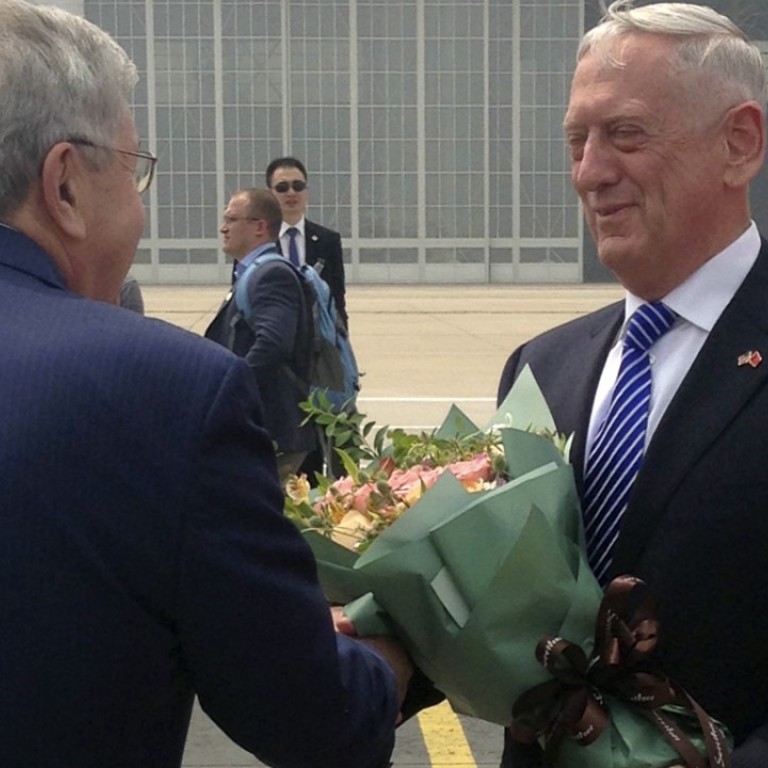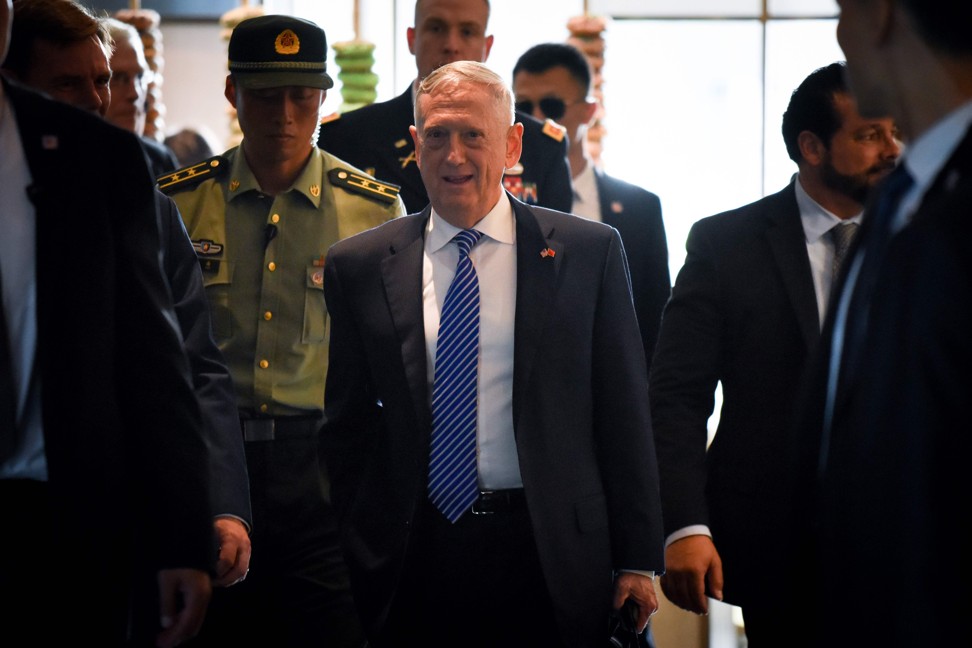
US defence chief Jim Mattis' visit unlikely to ease tensions over South China Sea and Taiwan: analysts
Chinese analysts don’t expect talks in Beijing to ease tensions
US Defence Secretary Jim Mattis became the first Pentagon chief to visit China since 2014 as he started a three-day trip on Tuesday amid heightened military tensions between the two countries.
Mattis was welcomed by Chinese officials with a floral bouquet when he arrived in Beijing, before heading to the US embassy.
He will hold talks with his Chinese counterpart, General Wei Fenghe, and is expected to meet President Xi Jinping, who is also chairman of the Central Military Commission, before he leaves for the next stop on his Asia tour, South Korea.
“I want to go in right now without basically poisoning the well,” Mattis said. “I’m going there to have a conversation.
“I do not want to immediately go in with a certain preset expectation of what they are going to say. I want to go in and do a lot of listening.”

The visit comes amid escalating trade hostilities between the two nations and strained military ties over the South China Sea and Taiwan.
Chinese analysts said that while dialogue was necessary to contain those tensions, they did not expect any major progress from the talks – rather that the two sides would clarify and reiterate their positions.
“I think the possible outcomes, if there are any, will be on a working level – such as plans to continue the exchanges,” according to Wu Xinbo, an American studies expert at Fudan University.
“I wouldn’t rule out Mattis being given some type of subtle demonstration of Chinese muscle, since goodwill gestures won’t be much help,” he said.
Mattis has strongly criticised China’s military build-up in the South China Sea, citing it as the reason the Pentagon withdrew an invitation for the Chinese navy to take part in the US-led Rim of the Pacific war games that begin on Wednesday off Hawaii, involving 25,000 troops from 26 nations.
He has also said the US would “compete vigorously” with China in the disputed waters if needed. US warships and planes have repeatedly patrolled near Chinese-controlled islands and features in the South China Sea to challenge Beijing’s “excessive claims” in the region, which China sees as a provocation.
But Fu Mengzi, deputy director of the China Institutes of Contemporary International Relations, said US military engagement with Taiwan was more of a concern for Beijing than America’s freedom of navigation operations in the South China Sea.
“Recent pro-Taiwan bills [such as the National Defence Authorisation Act passed by the US Senate] authorised the military to cooperate with Taiwan in ways that could overturn the foundation of US-China relations,” Fu said. “Beijing will want to make this point very clearly to Mattis.”
The Pentagon is also reportedly considering sending warships through the Taiwan Strait and increasing arms sales to Taiwan because of Beijing’s stepped-up military activity around the self-ruled island – which Beijing sees as a renegade province subject to reunification, by force if necessary.
Wu from Fudan University said Mattis would be aiming to pressure Beijing to take a step back on militarisation in the South China Sea, and may also warn the Chinese leaders against any “change to the status quo” across the Taiwan Strait.
“There are also lots of common security interests between the two countries, but we don’t expect Mattis’ visit to ease any of the tensions,” Wu said.

